

On October 23, 2025, "Recommendations of the Central Committee of the Communist Party of China for Formulating the 15th Five-Year Plan for National Economic and Social Development" was adopted at the Fourth Plenary Session of the 20th Central Committee of the Communist Party of China.
The recommendations are based on an in-depth analysis of the international and domestic landscapes. The eleventh chapter emphasizes ensuring and improving public wellbeing and promoting common prosperity for all. The main points are outlined below.
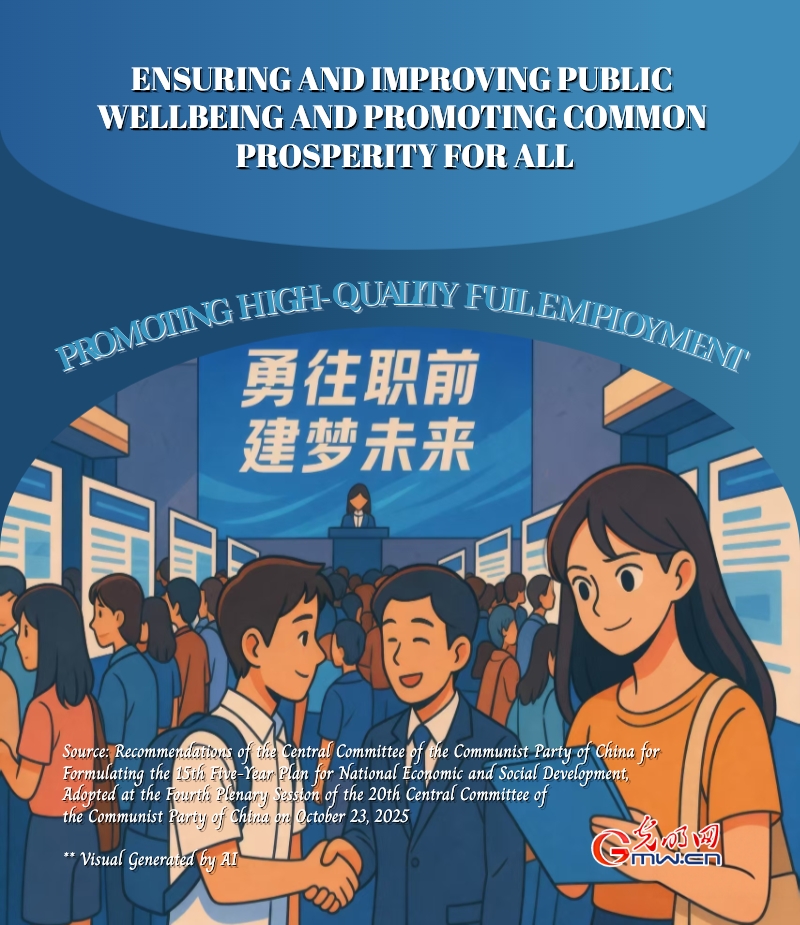
-- Promoting high-quality full employment
We should push forward with the employment-first strategy, improve related support mechanisms, and make our development model more employment-friendly. We should foster greater synergy between industry and employment, actively nurture new jobs and occupations, and help enterprises stabilize payrolls and step up hiring.
We should improve the mechanisms for matching the supply of human resources with demand, refine the system of lifelong vocational skills training, and work to effectively guide public opinion regarding career choices and personnel recruitment, with a view to addressing structural employment challenges. We should refine the employment support and public services system, and stabilize and expand employment among key groups, including college graduates, rural migrant workers, and ex-service members. We should also promote the healthy development of flexible and new forms of employment.
We should ramp up support for entrepreneurship and help business startups create more jobs. We should refine labor standards and the mechanisms for labor relation consultations and mediation and better protect the rights and interests of workers to create a fair and orderly employment environment. We should improve assessment, monitoring, and early warning regarding employment impacts, and respond in a holistic way to the effects of external changes and emerging technologies on employment.
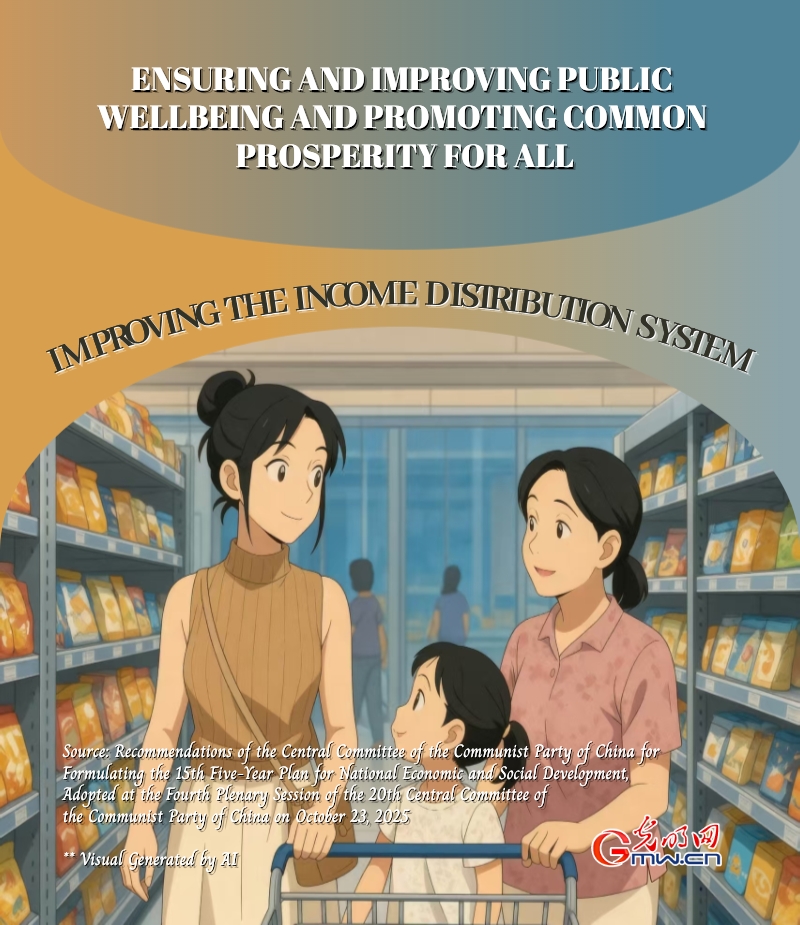
-- Improving the income distribution system
We must keep distribution according to work as the mainstay with multiple forms of distribution existing alongside it. We should work to raise the share of personal income in the distribution of national income and give more weight to work remuneration in primary distribution.
We should improve the mechanisms through which the contributions of production factors are determined by the market and rewarded accordingly in primary distribution. This will allow higher incomes for those who work hard, possess highly valued skills, or excel at innovation. We should also improve the mechanisms for determining wages, keeping them increasing at a reasonable rate, and ensuring their full payment. We should implement a system for collective wage bargaining, refine the mechanism for minimum wage adjustments, and strengthen macro guidance for enterprises on wage distribution.
We should leverage multiple channels to increase the property income of both urban and rural residents and promote further redistribution by means of taxation, social security, and transfer payments. Public interest activities and charities should be advanced and placed under better regulation. We should keep income distribution and the means of accumulating wealth well-regulated and support the acquirement of wealth through hard work, innovation, and lawful activities. We should encourage those who are already well-off to assist others in increasing wealth and promote prosperity for all.
We should put into effect an income growth plan for both urban and rural residents, effectively increase the earnings of low-income people, steadily enlarge the middle-income group, make reasonable adjustments to excessive incomes, and eliminate illicit gains, all with the aim of facilitating the formation of an oval-shaped structure of distribution.
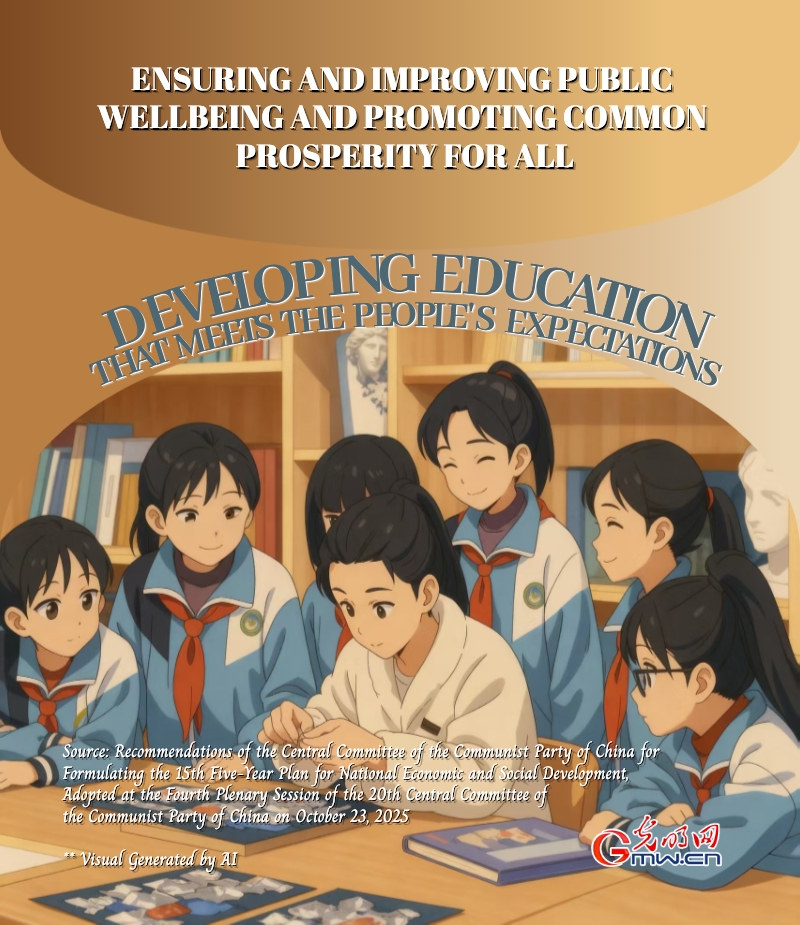
-- Developing education that meets the people's expectations
We should carry out the project of fostering virtue through education in the new era, promote effective integration between political studies in the classroom and practice in society, and strengthen physical, aesthetic, and labor skills education. The educational assessment system should also be refined. We should improve the mechanisms for allocating educational resources in response to demographic changes and channel more resources to urban areas with net inflows of school-age populations.
We should steadily expand the coverage of free education and explore the extension of the length of compulsory education. Basic education should be upgraded: coordinated efforts should be made to ensure more balanced, better-quality compulsory education and more inclusive and higher-quality preschool education; more resources should go to regular senior secondary schools; and special needs and specialized education programs should be well run.
We should expand and improve higher education and increase enrollment in quality undergraduate programs. We should enhance the training capacities of vocational schools and develop vocational colleges with distinctive features. We should guide and regulate the development of private education and expand high-standard opening up in the education sector. We should promote the educators’ ethos, cultivate high-caliber teachers, and ensure better pay and benefits for teachers. We should improve the school-family-society collaboration mechanism in education, advance the digital transformation strategy for education, and optimize public services in support of lifelong learning.
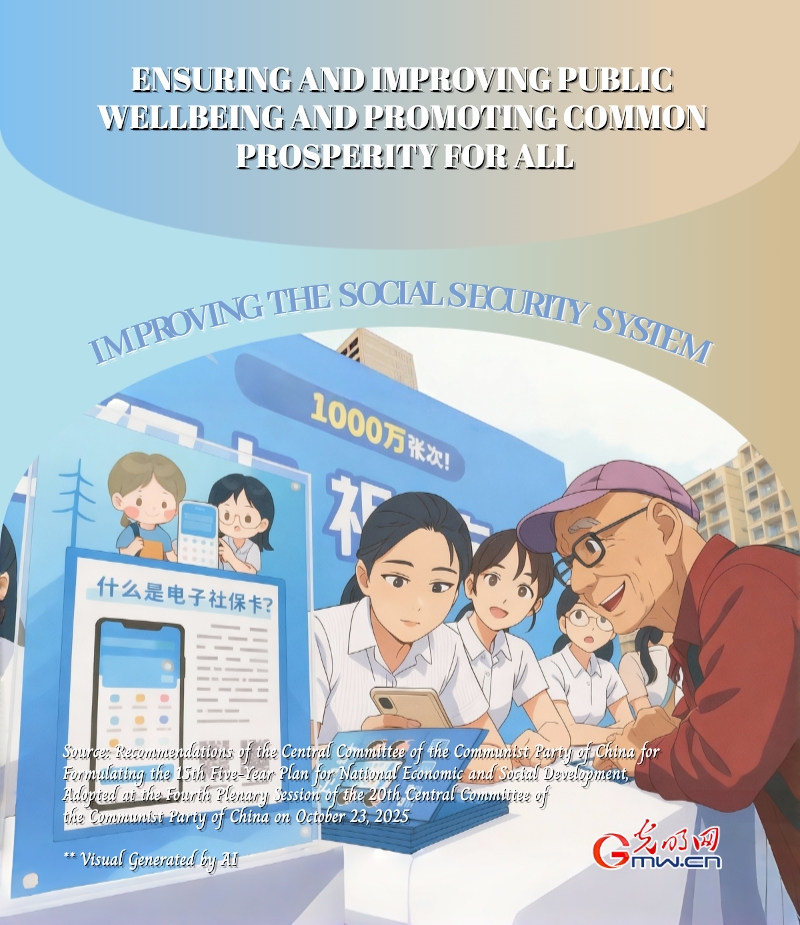
-- Improving the social security system
We should improve and implement the unified national management system for basic old-age insurance funds, move faster to develop the multi-tiered, multi-pillar old-age insurance system, and improve the mechanisms for setting and adjusting benefits. Basic old-age insurance benefits for rural and non-working urban residents should be gradually increased. We should improve the multi-tiered medical security system, advance unified management of basic medical insurance funds at the provincial level, and improve the policies on centralized medicine procurement, medical insurance payment, and the use of surplus funds. We should expand the coverage of unemployment insurance and workers’ compensation schemes and build sound systems for occupational injury insurance. We should improve the policies for transferring social security accounts and work for wider social security coverage among rural migrant workers as well as people in flexible employment and new forms of employment.
We should improve the social insurance actuarial system, continue to transfer a portion of state capital to replenish social security funds, and improve the mechanisms for guaranteeing long-term, sustainable contributions to social security funds, conducting overall management and regulation of funds, maintaining and increasing their value, and ensuring their safety. Commercial insurance schemes should be leveraged as a supplementary support. We should improve the unified national platform for social insurance public services and the management of and services by insurance agencies nationwide.
We should refine the social assistance system, improve the service and support system for elderly people who live alone, children in need, and people with disabilities, and put in place a sound system for basic funeral services. We must remain committed to the basic state policy of gender equality and protect the legitimate rights and interests of women and children. We should continue to improve services and support for ex-service members.
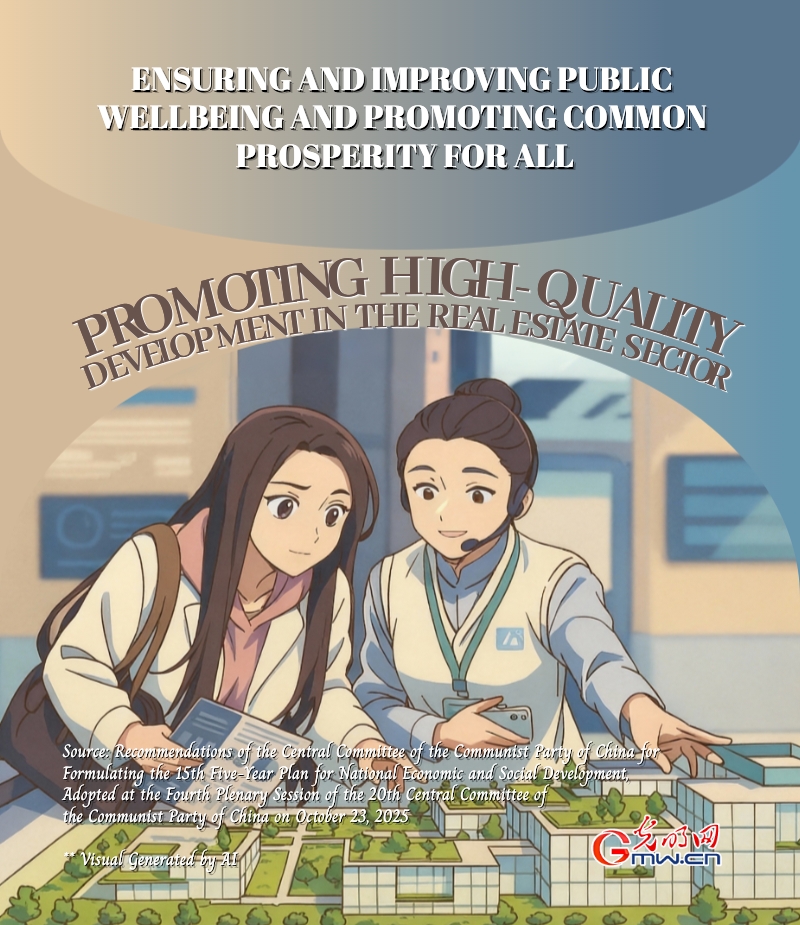
-- Promoting high-quality development in the real estate sector
We must work faster to cultivate a new development model for the real estate sector and further improve foundational systems for the development, financing, and sales of commodity housing. We should improve the supply of government-subsidized housing to meet the basic housing needs of urban salaried workers and families with difficulties. City-specific policies should be adopted to increase supply to meet people’s needs for better housing. We should build more houses that are safe, comfortable, eco-friendly, and smart and carry out projects to improve housing quality and initiatives to improve property services. A full life-cycle safety management system should be introduced for housing.
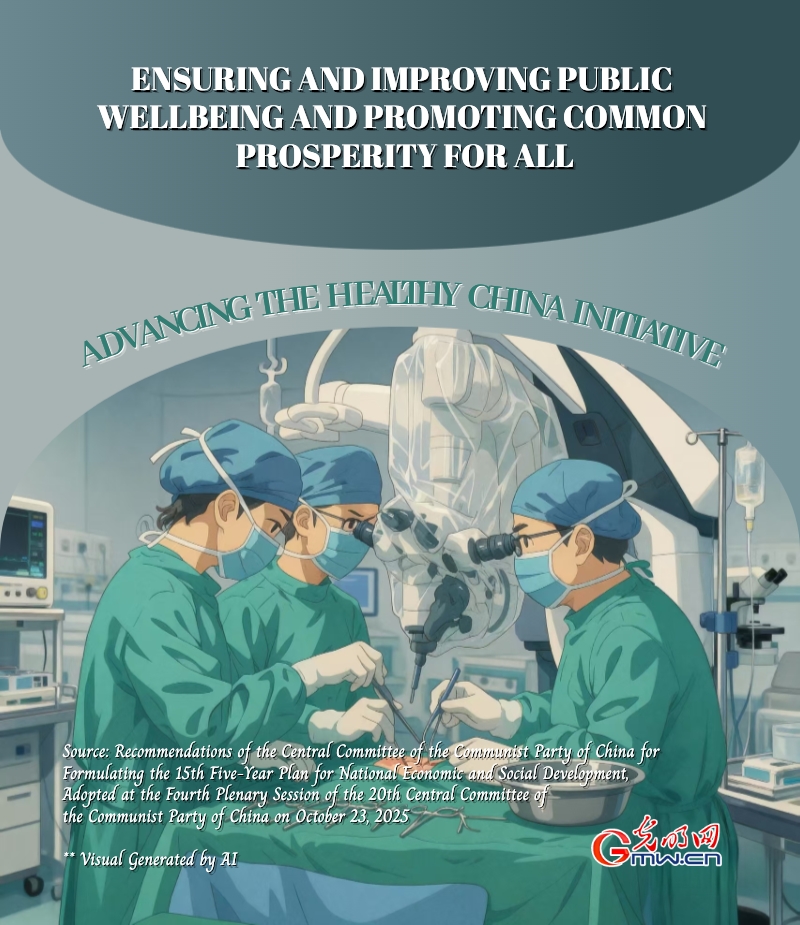
-- Advancing the Healthy China Initiative
We should implement a health-first strategy, refine the framework of policies and institutions for promoting people’s health, and deliver better outcomes in patriotic health campaigns to raise the average life expectancy and improve the people’s health. We should increase our public health capacity, strengthen the disease control system, and effectively prevent and control major infectious diseases.
We should improve the mechanisms for coordinated development and governance of medical services, medical insurance, and pharmaceuticals and promote tiered diagnosis and treatment. We should push ahead with reforms related to the staffing, service charges, remuneration systems, and overall regulation of public hospitals to ensure that they truly serve the public interest. In addition, greater support should be provided for the running of county, district, and community-level medical institutions. We should refine the functions and layout of medical institutions, launch initiatives to strengthen community-level medical and health services, and harness digital and intelligent technologies to improve the health of the entire nation.
We should strengthen comprehensive prevention and control of chronic diseases and develop end-to-end services covering prevention, treatment, rehabilitation, and health management. We should increase our overall capacity in terms of emergency treatment, first aid, blood supply, and other aspects of emergency response. Greater efforts should be made to ensure that medical and healthcare personnel provide better services and uphold professional ethics.
We should promote the preservation and innovative development of traditional Chinese medicine (TCM) as well as integrated application of TCM and Western medicine. We should support the development of innovative drugs and medical apparatus and instruments and provide better mental and psychological health services.
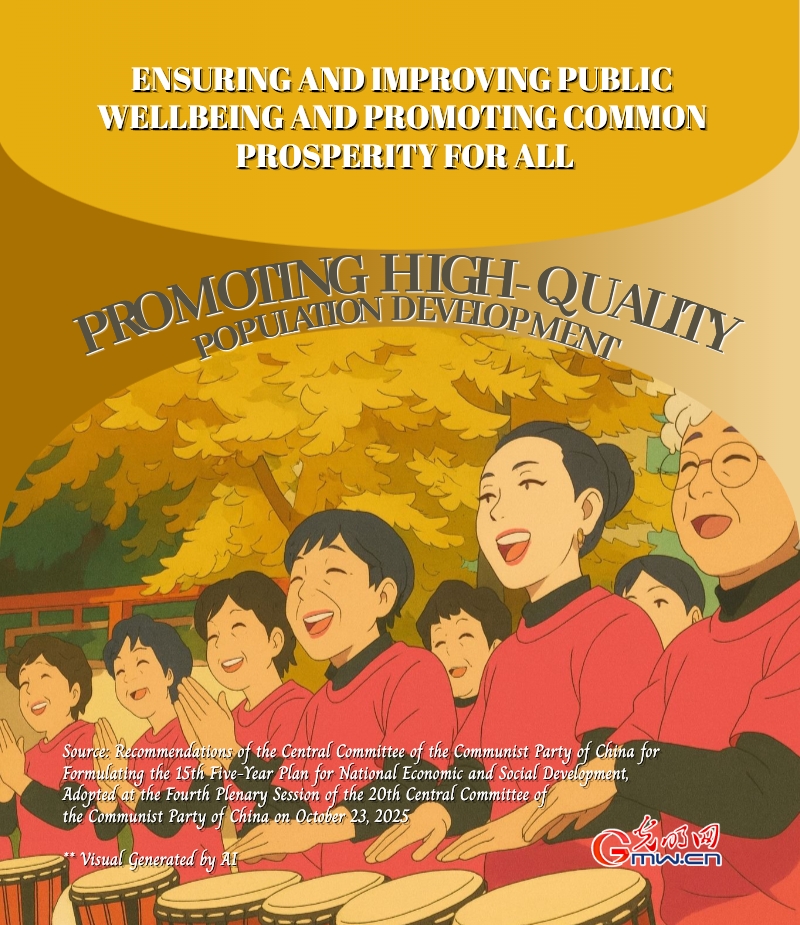
-- Promoting high-quality population development
A sound system will be instituted to provide full life-cycle population services to all. We should encourage positive views on marriage and childbearing, refine the policies and incentives for boosting birth rates, and effectively bring down the costs of childbirth, parenting, and education through childcare subsidies and personal income tax credits. We should improve the maternity insurance system, better implement parental leave, and carry out initiatives to provide better services for women in the early stages of pregnancy, improve reproductive health, and better prevent and treat birth defects. We should expand demonstrations and trials for subsidized childcare services, provide support for public-benefit childcare services and integrated nursery and childcare services, and take steps to improve relevant systems. Better health services should be ensured for women and children.
We must actively respond to population aging and refine the policies and mechanisms for coordinating the development of elderly care programs and industries. We should enhance the provision of basic elderly care services, improve elderly care service networks in both urban and rural areas, and renovate more public facilities to make them age-friendly and barrier-free. We should provide medical services integrated with infant care and elderly care. We should roll out insurance schemes for long-term care, improve the care system for seniors who are functionally impaired, and expand rehabilitation services and hospice care. The statutory retirement age should be gradually raised in a prudent manner. We should improve relevant policies on age requirements related to employment and social security, actively tap elderly human resources, and develop the silver economy.
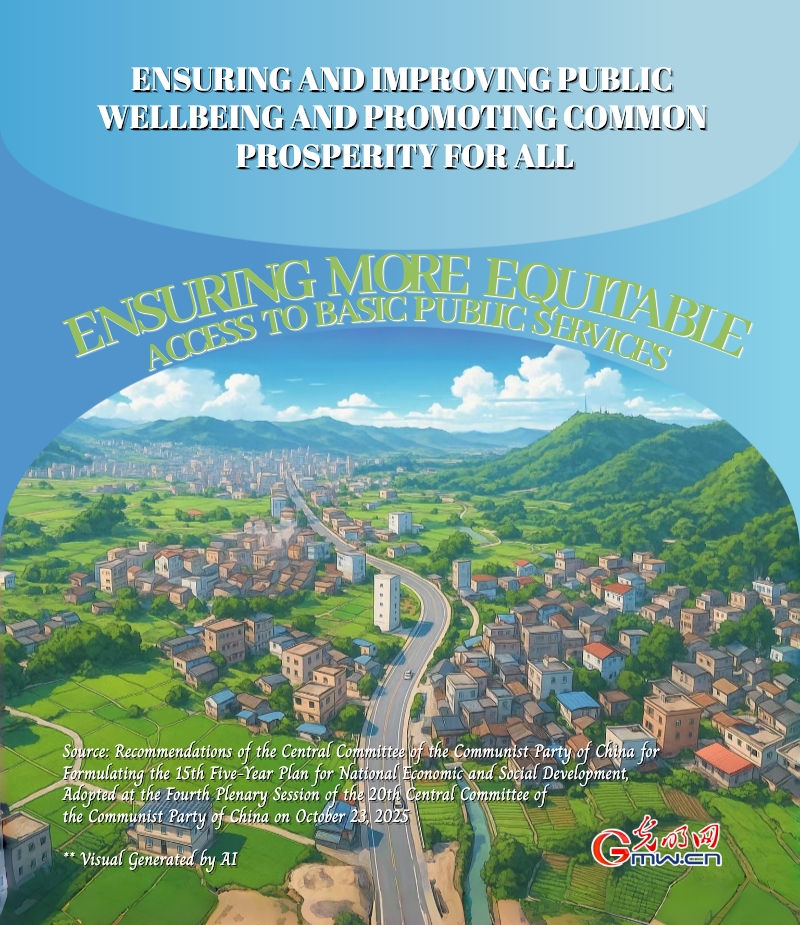
-- Ensuring more equitable access to basic public services
We should establish assessment standards for equitable access to basic public services, refine the scope and specifics of these services, and define the targets, pathways, and measures for realizing equitable access to them. We should channel more public services toward the community level, rural areas, remote regions, and people in need, and improve the mechanisms for allocating public resources according to the size of permanent resident population. We should better coordinate the supply of basic public services at the county level and improve long-term mechanisms to guarantee the inputs for their provision. We should deepen the reform of public institutions across the board.
点击右上角![]() 微信好友
微信好友
 朋友圈
朋友圈

请使用浏览器分享功能进行分享
